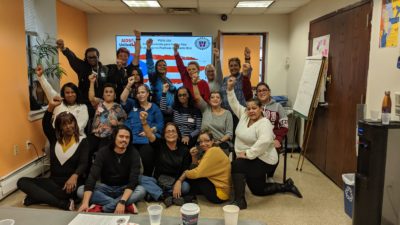 January 16, 2020: “I didn’t know too much about PWN, but I wanted to empower Latin women. Now I know so much!” This was the reaction of just one of the twelve women living with HIV who attended a special two-day pilot training in New York of a Spanish language curriculum that Positive Women’s Network – USA (PWN) created in partnership with AIDS United. The goal? To develop a training program for women living with HIV in Puerto Rico, based on PWN’s mission and values, in Spanish and culturally tailored to Puerto Rican women.
January 16, 2020: “I didn’t know too much about PWN, but I wanted to empower Latin women. Now I know so much!” This was the reaction of just one of the twelve women living with HIV who attended a special two-day pilot training in New York of a Spanish language curriculum that Positive Women’s Network – USA (PWN) created in partnership with AIDS United. The goal? To develop a training program for women living with HIV in Puerto Rico, based on PWN’s mission and values, in Spanish and culturally tailored to Puerto Rican women.
The pilot training took place December 14-15, 2019, at Iris House, with the help and support of PWN New York, and included modules on:
- PWN’s mission, vision, and values
- Successes and challenges unique to women living with HIV in Puerto Rico
- Meaningful involvement of people living with HIV (MIPA)
- Laws and regulations impacting people living with HIV in Puerto Rico
- Gender justice
- Next steps for Puerto Rico
The curriculum is the product of a year of work that included convening a curriculum advisory group of Spanish-speaking women living with HIV from Puerto Rico, who received honoraria to make recommendations on the training outline, feedback on the curriculum, and to review the evaluations. This group worked with curriculum and content expert Mari Plaza-Munet, who has over twenty-five years of experience creating HIV curricula for both Spanish- and English-speaking communities. PWN hired four women living with HIV to be Spanish language trainers for the curriculum and provided coaching and support to the trainers via weekly meetings to review and connect with the curriculum, including three from Puerto Rico; they facilitated the New York pilot. It was the first time they had been paid for their years of expertise in this field. Our trainers were Rosa Rivera-Aviles, Jacqueline Sepulveda, Dianne Michelle Trinindad-Ramos, and Aracelis Quinones.
The training was very well received by the twelve participants, all of whom showed up both days and were fully engaged. “Everything I have lived, I want to share here, and create one community with leaders,” said one. “[I’m used to medical services in Spanish], but to have everything in Spanish? That is really MIPA!” said another.
Stay tuned for next steps for 2020! We will be revising the curriculum with suggestions from the pilot program participants, supporting our trainers, and hopefully training in Puerto Rico—a community that has experienced so much tragedy and hardship over the past four years. We hope the training is just one small piece of a larger effort to build, recognize, and honor the leadership of Puerto Rican women living with HIV.



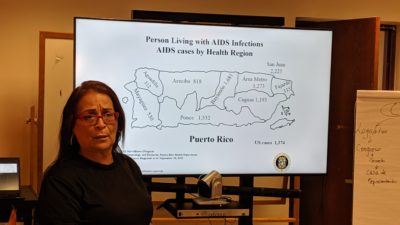
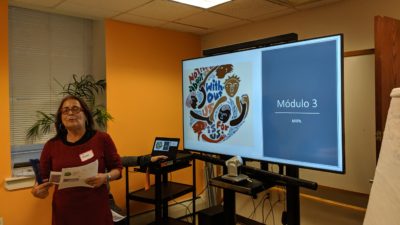
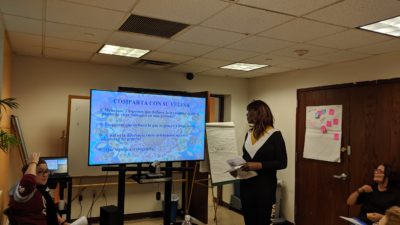
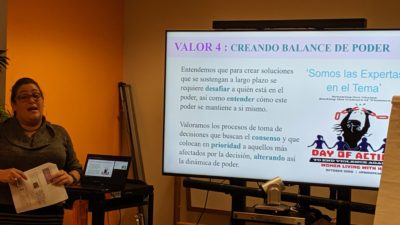
Very cool